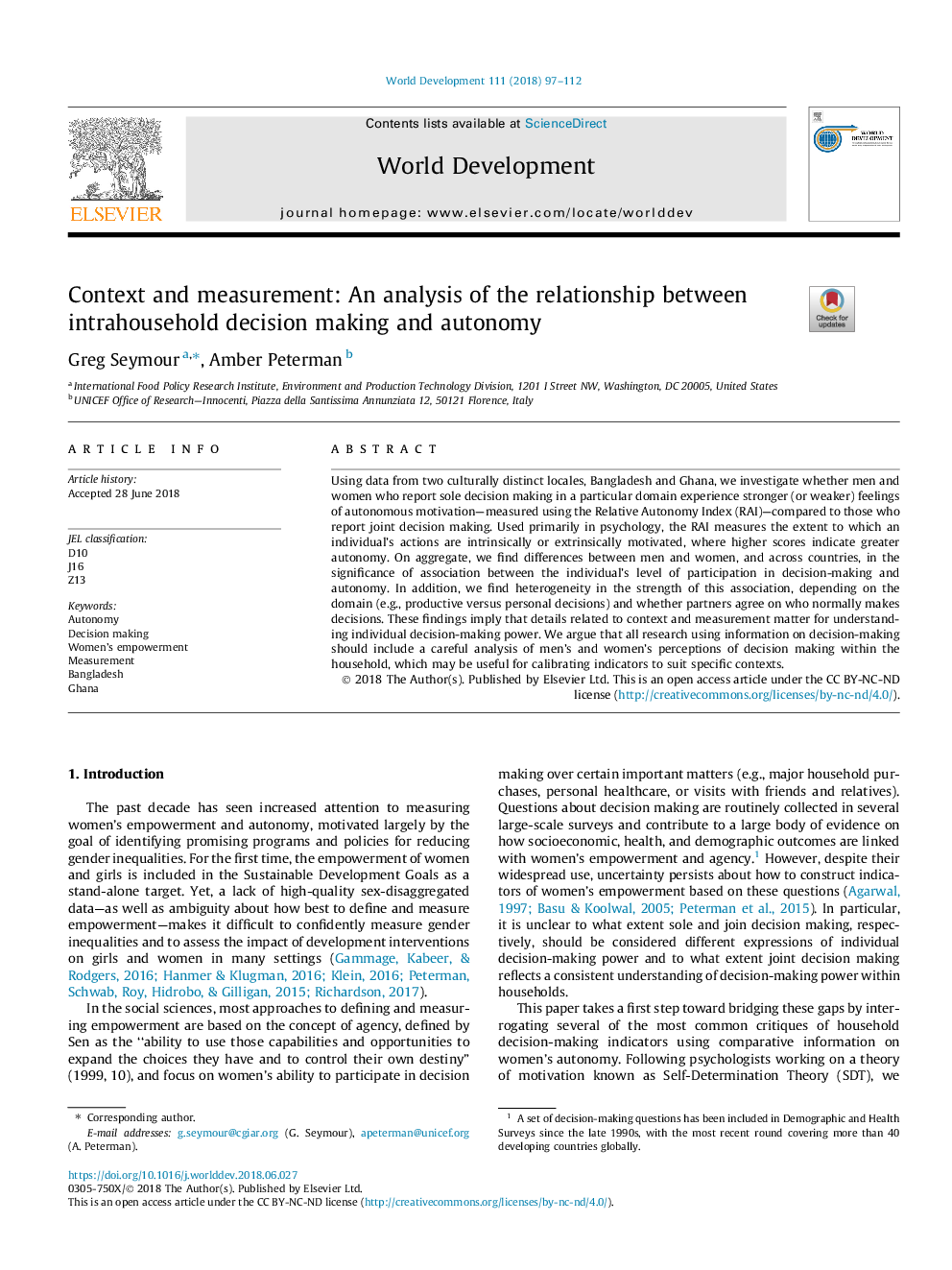| Article ID | Journal | Published Year | Pages | File Type |
|---|---|---|---|---|
| 7391068 | World Development | 2018 | 16 Pages |
Abstract
Using data from two culturally distinct locales, Bangladesh and Ghana, we investigate whether men and women who report sole decision making in a particular domain experience stronger (or weaker) feelings of autonomous motivation-measured using the Relative Autonomy Index (RAI)-compared to those who report joint decision making. Used primarily in psychology, the RAI measures the extent to which an individual's actions are intrinsically or extrinsically motivated, where higher scores indicate greater autonomy. On aggregate, we find differences between men and women, and across countries, in the significance of association between the individual's level of participation in decision-making and autonomy. In addition, we find heterogeneity in the strength of this association, depending on the domain (e.g., productive versus personal decisions) and whether partners agree on who normally makes decisions. These findings imply that details related to context and measurement matter for understanding individual decision-making power. We argue that all research using information on decision-making should include a careful analysis of men's and women's perceptions of decision making within the household, which may be useful for calibrating indicators to suit specific contexts.
Related Topics
Social Sciences and Humanities
Economics, Econometrics and Finance
Economics and Econometrics
Authors
Greg Seymour, Amber Peterman,
